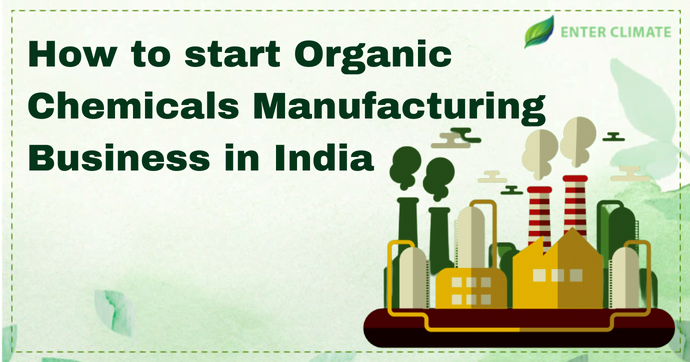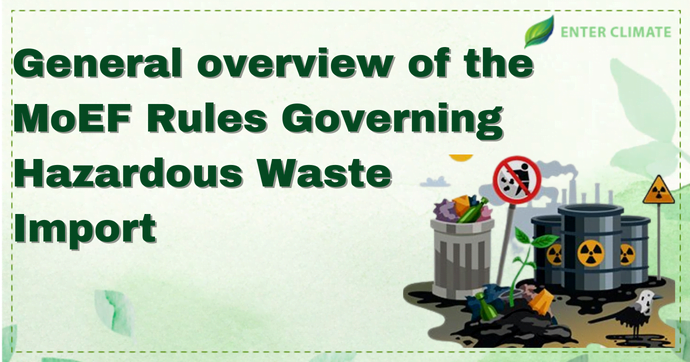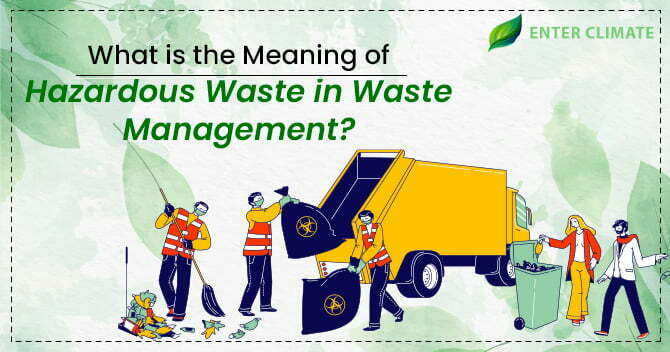How to start Organic Chemicals Manufacturing Business in India?
 01 Oct, 2022
01 Oct, 2022 
The Organic Chemicals Manufacturing Business is essential to the chemical manufacturing sector. It provides and encourages many technological advancements and innovations. The organic chemicals industries also play an essential part in supplying intermediates and chemicals as raw material to other industries, like adhesives, paints, dyestuffs, pharmaceuticals, leather chemicals, alcohol, pesticides, ethanol, turpentine(excluding mineral turpentine)and several organic dyes or pigments.
The major organic chemicals manufactured in India include methanol, formaldehyde, phenol, acetic acid, pyridines, acetic anhydride, alkyl amines and ethyl acetate. Except for India, the other major producers of organic chemicals are the USA, Germany, UK, Japan and China. Countries like Brazil and Chile are trying to increase the production of these essential chemicals.
Market overview of Organic Chemicals Manufacturing Plant in India
According to the market analysis of the Indian chemical industry, alkali chemicals have the highest worth occupying the largest market share, estimating 71.9 per cent of the total production from April to July 2021 for the financial year 2022. The production of polymers accounts for approximately 59 per cent of the total production of basic key petrochemicals in 2019. The organic chemicals manufacturing industry is expected to contribute 300 billion US Dollars to India’s Gross Domestic Product by 2025.
The chemicals manufacturing industry in India includes more than 80,000 manufactured products that fall under the category of chemical Industry, with a total market size worth 178 billion US Dollars in 2018-19. The industry is estimated to grow at a Compound Annual Growth Rate (CAGR) of 9.3 per cent to reach 304 billion US Dollars by 2025 on the back of rising demands in the end-user segments for speciality chemicals and petrochemicals. The speciality chemicals sector is expected to reach 40 billion US Dollars by 2025.
The Compound Annual Growth Rate of organic chemicals manufacturing across India in the financial year 2021
|
Organic Chemicals Manufacturing Industry |
Compound Annual Growth Rate |
|
Ortho nitro toluene |
18.99 per cent |
|
Isobutyl benzene |
16.44 per cent |
|
Chloromethane |
10.22 per cent |
|
Acetone |
9.86 per cent |
|
Phenol |
8.9 per cent |
|
Methanol |
7.24 per cent |
|
Ethanol amines |
6.25 per cent |
|
MEK |
5.17 per cent |
|
Ethyl acetate |
5.11 per cent |
|
PNCB |
3.27 per cent |
|
Nitrobenzene |
2.21 per cent |
Different types of Chemical Industry
The three main classifications for the chemical industry are: –
1. Primary
- Inorganic chemicals
- Aromatics
- Thermoplastics
- Thermosets
2. Knowledge
- Biotechnology
- Agrochemicals
- Pharmaceuticals
3. Specialty
- Coatings
- Water treatment chemicals
- Adhesives
- Additives
- Organic chemicals
- Paints
- Sealants
Environmental Compliances to be followed by Organic Chemicals Manufacturing Business
Organic Chemicals Manufacturing Business has to file for environmental compliances governed by the Ministry of Environment, Forest and Climate Change (MoEF) to receive government incentives and fulfil their responsibilities mandated by the rules and the authorities.
Consent Certificates
CTE (Consent to Establish) is obtained by the owner of the Organic Chemicals Manufacturing Business before the plant is established. CTO (Consent to Operate) is obtained by the owner after the plant is established and is ready to start the industrial process.
The authorisation/certification process for both the Consent Certificates (Consent to Establish and Consent to Operate) is set under the Air and Water (Prevention and Control of Pollution) Acts. Moreover, the certification process for both certificates is similar. The registration application is submitted online with the required documents by the respective Union Territory Pollution Control Committee (PCC) or any State Pollution Control Board (SPCB) website. This is followed by a though examination of an application form. Upon inspection of the documents, the consent certificate is granted.
Note: – Once the additional documents are examined, in the case of Consent to Operate, an authorised government official of state authorities conducts a site inspection and makes the report accordingly. Upon inspection report, the Consent to Operate is granted.
Documents required for Consent to Establish
According to the Air and Water (Prevention and Control of Pollution) Acts, for acquiring CTE from the SPCB/PCC for Organic Chemicals Manufacturing Business, the business owner has to submit the relevant documents like: –
- Land acquisition documents, comprising sale deed or registration/lease
- Consent to Establish for Organic Chemicals Manufacturing Business requires a detailed project report. The report mentions financial breakdown related to pollution control measures, break up of land used, industrial process, flow chart of the procedure, control equipment relating to air pollution, details for Effluent Treatment Plants (ETPs) and Solid Waste Management (SWM) and production of wastewater
- Layout/site plan
- GST certificate
- Aadhaar card
- Copy of self-declaration form for Restriction of Hazardous Substances (RoHS)
Documents required under Consent to Operate
For acquiring Consent to Operate from the SPCB/PCC for Organic Chemicals Manufacturing Business, one has to submit the following documents:-
- Site plan/layout
- Electricity bill
- Land ownership proof like rent agreement/lease agreement
- Water bill
- Proof of registration under the Companies Act/LLP Act
- PAN card
- Aadhaar card
- Health Trade License
- Goods and Services Tax Certificate
- Form 5 is to be filled under Rule 14 of the Environmental (Protection) Act
- CA letter on the financial breakup
- Municipality/Industry license for trading business
- Authorisation letter
- Factory or Trade License
- Consent to Establish certificate
Hazardous Waste Authorisation for Organic Chemicals Manufacturing Business
The registration relating to the establishment or transboundary or cross-country movement of hazardous waste that includes the establishment of Organic Chemicals Manufacturing Business is regulated under The Hazardous Wastes (Management, Handling and Transboundary Movement) Rules, 2015. For authorisation, the owner must apply under Form 1 to the concerned SPCB to acquire the authorisation.
Documents required for Hazardous Waste Authorisation
The documents that are to be submitted mandatorily while applying for hazardous waste authorisation are: –
- CTO
- CTE
- Certificate of incorporation (CIN)/LLP
- MOA (Memorandum Of Association)
- Board resolution for appointing an authorised person
- AOA (Article of Association)
- Aadhaar card
- Layout plans
- PAN copy
- GST certificate of business
- Factory license/Trade license
- Rent/proof of ownership
General Business Setup Licenses
The manufacturer must acquire specific mandatory licenses to set up any business. Similarly, the Organic Chemicals Manufacturing Businessowner has to acquire general licenses and authorisation from the concerned governmental authorities. Some of these licenses are: –
Company license
Documents required for establishing the company
- PAN card
- Address proof such as
- Passport
- Election or Voter Identity card
- Ration card
- Driving license
- Electricity bill
- Telephone bill
- Aadhaar card
- Residential proof, like
- Bank statement
- Electricity bill
- Telephone bill
- Mobile bill
- GST registration certificate
- MOA (Memorandum of Association)
- AOA (Article of Association)
Udyam MSME registration for Organic Chemicals Manufacturing Business
To obtain MSME (Micro, Small and Medium Enterprise) registration, the owner of Organic Chemicals Manufacturing Business has to register through the centralised online portal of the Ministry of Micro, Small and Medium Enterprise. Subsequently, the owner must upload the mandated documents.
Documents needed for MSME registration
- Applicant’sofficial name
- Name and type of enterprise
- Aadhaar card
- PAN card
- The NIC Code
- Account details
- The social category of the applicant
- The business operations of the enterprise
- Date of Incorporation of a business
- Details related to employment
Factory license acquired by Organic Chemicals Manufacturing Business
Organic Chemicals Manufacturing Business owners must list their business under Factories Act to institute their manufacturing units. According to the Act, business owners are mandated to get a Factory license, which the Chief Inspector of the Labour Commissioner Organisation approves after examining the site.
Documents needed by Organic Chemicals Manufacturing Business
To get a Factory license for Organic Chemicals Manufacturing Business, the documents required are: –
- Form 1
- MOA
- Aadhaar card
- Layout/site plan
- List of directors
- AOA
- Partnership deed
- Account details
- Commencement date
- Payment receipt
- Land deeds
- Consent form from SPCB/PCC
- Details of hazardous and non-hazardous waste
- Tax receipt
Import Export Code (IEC) registration for India
Import and Export Code / IEC is the personalised ten-digit code. It is required for every exporter and importer in the country.IEC is authorised by the Director-General of Foreign Trade (DGFT) of The Ministry of Commerce. One of the significant features of this code is that it requires a one-time authorisation and does not need new registration or renewal.
The application for authorisation for the Import Export Code is submitted online with the required documents (Digital Signature Certificate) DSC and Bank Details. The authorities then check these, after which the code is authorised in soft copy for import or export by Organic Chemicals Manufacturing Business.
Documents Required
The Ministry of Commerce mandates the following documents for an IEC registration –
- PAN card of the company
- Applicant’s PAN
- Aadhaar card
- Company Incorporation Certificate or partnership deed
- Address proof
- cancelled cheque leaf/banker certificate copy of the current account in the company’s name
Fire NOC
Granted by the Local Municipality Authority, the fire No objection Certificate is mandatory for Organic Chemicals Manufacturing Business. The state government regulates the NOC. This involves the process of applying with the mandated documents. These are then forwarded to the Chief Officer of the Fire Service Department, who further inspects the manufacturing site. After the inspection, the report is framed and submitted to the department, which grants a No Objection Certificate (NOC) on further examination.
Documents required for fire NOC for Organic Chemicals Manufacturing Business
- Site plan
- Basement floor plan
- Stilt/Ground floor plan
- Floor-wise plan
- Terrace plan
- Section plan
- Elevation plan
- Any other supporting documents related to the ones mentioned above
GST Certificate
Document required for GST certificate for establishing Organic Chemicals Manufacturing Business
- PAN card
- The Ministry of Corporate Affairs (MCA)[1] authorised Incorporation Certificate
- MOA
- AOA
- Aadhaar card of the applicant
- Address proof
- Bank details
Trade license needed by Organic Chemicals Manufacturing Business
Municipal Corporation grants a trade license for Organic Chemicals Manufacturing Business. The grant of this license depends on the rules and regulations set by the state. The documents required for Trade licenses are submitted along with the application.
Documents required for trade license Organic Chemicals Manufacturing Business
- Address proof (electricity or water bill)
- Aadhaar card
- PAN
- Memorandum of Association (MOA)
- Certification of Incorporating (CIN) in case of companies
- A latest municipal property tax receipt in case the land of Organic Chemicals Manufacturing Business is owned, else lease document/consent letter of the owner of the property where the business is registered
- NOC of the neighbours (nearby property owners)
- Layout/Site plan of the office
Conclusion
Organic Chemicals Manufacturing Business in India contributes mainly to the Chemical Industries in the country. India ranks among the top countries having the most significant production unit for Organic Chemical Manufacturing. As mentioned before, according to many Market Analysis Reports, the industry is projected to grow at a CAGR (Compound Annual Growth Rate) of 9.3 per cent to reach 304 billion US Dollars by the year 2025 on the back of increasing demand in the end-user part for speciality chemicals and petrochemicals. The speciality chemicals sector is expected to reach 40 billion US Dollars by 2025.













